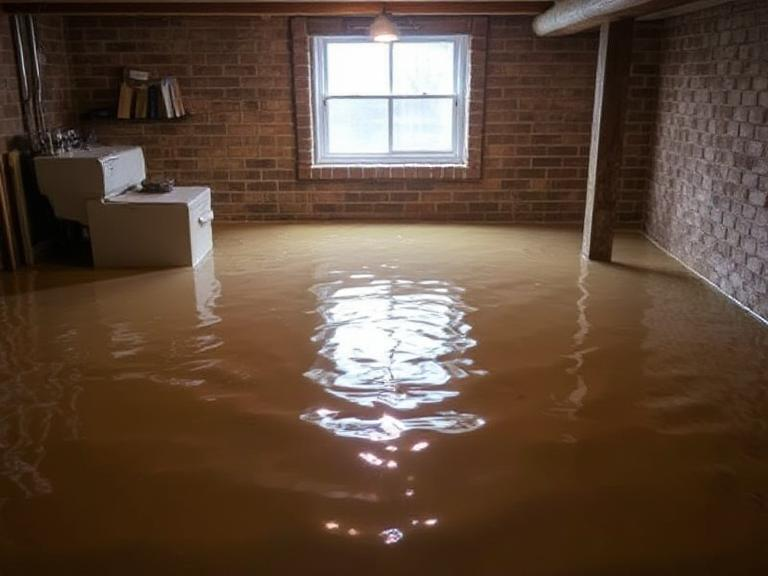Basement flooding is one of the most common and damaging types of water damage homeowners face. Whether it’s from heavy rains, a burst pipe, or an unexpected storm, a flooded basement can lead to a nightmare of repairs, damage to your property, and even mold growth. However, there’s one critical aspect that many homeowners fail to realize: their insurance coverage.
If you’re relying on your standard homeowners insurance policy to cover basement flooding, you might be in for a surprise. In this article, we’ll dive into why your insurance agent may not want you to know the full truth about flood insurance, and how to make sure you’re properly covered in the event of a flooded basement.
Insurance Policies Don’t Always Cover Flood Damage
Many homeowners assume that their regular homeowners insurance policy will cover all types of water damage. Unfortunately, that’s often not the case—especially when it comes to basement flooding.
Here’s the reality: standard homeowners insurance typically does not cover flood damage. That means if your basement floods due to a storm, heavy rains, or rising water levels, your insurance policy might not cover the damages, leaving you to foot the bill for repairs. This is a major reason why insurance agents might not want you to know this detail—because many homeowners are under the false impression that they’re already covered.
What Does Homeowners Insurance Cover?
Homeowners insurance usually covers water damage caused by specific events, such as:
- Burst pipes: If a pipe inside your home bursts, it’s typically covered under a standard policy.
- Roof leaks: Water damage caused by a leaky roof may also be covered if the leak is due to a sudden, unexpected event (e.g., a storm).
- Sewer backups: Some policies may offer limited coverage for water damage resulting from a sewer backup, but this is not standard.
What Homeowners Insurance Doesn’t Cover
- Flooding: This includes damage from heavy rains, snowmelt, or flooding rivers. Flooding is specifically excluded from most homeowners insurance policies.
- Groundwater intrusion: If water enters your basement through cracks in the foundation or rising groundwater, it’s generally not covered.
Why Flood Insurance is Essential
So, how can you protect yourself against basement flooding? The answer is flood insurance. Unlike standard homeowners insurance, flood insurance is designed to cover damage caused by flooding. It’s a separate policy that you can purchase through the National Flood Insurance Program (NFIP) or from private insurers.
Flood insurance can help you cover the cost of repairs, clean-up, and even the replacement of damaged items such as furniture, appliances, and electronics in the event of a basement flood. If you live in an area prone to flooding (such as a floodplain), flood insurance is not just recommended—it’s crucial.
Key Benefits of Flood Insurance:
- Covers basement flooding: If your basement floods due to natural causes like heavy rainfall or rising water, flood insurance will cover the damage.
- Provides additional protection: Even if you don’t live in a high-risk flood zone, flood insurance can offer peace of mind in case of unexpected events.
- Helps with repairs: Flood insurance can help pay for repairs to your foundation, flooring, and other structural elements that may be affected by water damage.
What’s Covered Under Flood Insurance?
Flood insurance covers a range of damages caused by flooding, including:
- Structural damage: This includes damage to your foundation, walls, and flooring.
- Personal property: Items like furniture, electronics, and clothing may be covered.
- Basement contents: If you have valuable items like a washer, dryer, or electronics in your basement, these could be covered under a flood insurance policy.
However, it’s important to note that not all items are covered by flood insurance. For instance, basement finishes like drywall or carpeting may not be covered, so it’s important to understand the limits of your policy.
How Much Does Flood Insurance Cost?
The cost of flood insurance can vary depending on several factors, including:
- Your location: If you live in a high-risk flood zone, flood insurance will generally cost more.
- The value of your home: Higher-valued homes will have more expensive premiums.
- Coverage limits: The more coverage you need, the higher your premium will be.
Flood insurance premiums typically range from $400 to $1,000 per year for standard coverage. However, the cost can be higher depending on the factors mentioned above.
Don’t Wait Until It’s Too Late
The biggest mistake homeowners make is waiting until their basement floods to consider flood insurance. By then, it’s too late to purchase coverage. Flood insurance has a 30-day waiting period before it becomes active, meaning if a storm is coming in the next few days, you may be too late to file a claim.
To ensure you’re adequately covered, it’s important to purchase flood insurance well in advance of any potential flooding events. If you’re in a flood-prone area, it’s highly advisable to get coverage now to avoid the stress and financial burden of unexpected flooding.
What to Do If Your Basement Floods
If your basement does flood, even with the proper insurance coverage, you’ll want to act quickly to minimize the damage and start the cleanup process. Here’s what you should do:
- Ensure safety: First, make sure all electrical appliances and outlets are turned off and that it’s safe to enter the flooded area.
- Document the damage: Take photos of all damage to your basement and belongings. This will be essential when filing your flood insurance claim.
- Start the clean-up: If it’s safe to do so, begin removing standing water and drying out the basement as soon as possible to prevent mold growth and further damage.
- Contact your insurance company: Notify your insurance provider as soon as the flooding has occurred, and begin the claims process.
Conclusion
A flooded basement can be a devastating experience, and many homeowners unknowingly make the mistake of assuming their homeowners insurance will cover the costs. Unfortunately, flood damage is usually excluded from standard insurance policies, and without flood insurance, you may be left to pay for repairs out of pocket.
To avoid the hidden costs of a flooded basement, make sure you’re properly insured. Flood insurance is the best way to ensure that you’ll be covered if disaster strikes.
For more information on how to protect your home and your basement, our website here provides more tips and resources on water damage restoration.



